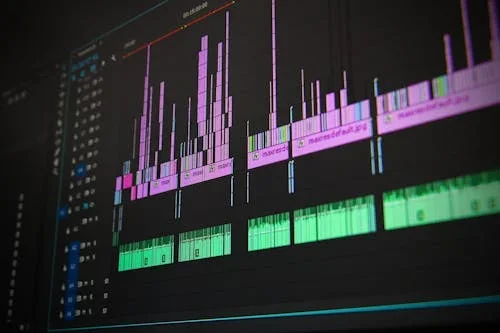Running a music school is both rewarding and challenging. From scheduling lessons and managing student records to coordinating teachers and handling tuition payments, the administrative workload can be overwhelming. Without a proper system, mistakes like double bookings, missed payments, or poor communication can quickly derail operations. That’s why investing in music school management software has become essential for modern music academies.
Music school management software is a digital solution that simplifies day-to-day administration while enhancing the learning experience for students and teachers. By centralizing scheduling, payments, communication, and progress tracking, these platforms empower schools to focus less on paperwork and more on nurturing talent.
If your school still relies on manual spreadsheets or paper records, it may be holding you back. The right music school management software not only reduces admin stress but also helps you build a professional, scalable, and student-friendly institution.
Why Music Schools Need Management Software
Unlike traditional classrooms, music schools often deal with complex scheduling. Students may take multiple instruments, lessons may be private or group-based, and teachers often manage different availability windows. Without a system to handle this complexity, miscommunication and scheduling conflicts are inevitable.
Beyond scheduling, schools must also track tuition fees, communicate with parents, and maintain records of student progress. Music school software automates these tasks, ensuring accuracy and efficiency.
Streamlined Scheduling
Music school management software includes advanced scheduling tools that allow you to set up classes, manage recurring lessons, and handle cancellations or rescheduling with ease. Students and parents can view availability in real-time.
Tuition and Payment Management
Instead of chasing payments manually, the software automates invoicing and integrates with secure payment gateways. This ensures timely fee collection and provides clear financial records.
Student Progress Tracking
Teachers can log student achievements, lesson notes, and practice assignments. This feature helps schools demonstrate measurable progress to parents and motivates students to stay engaged.
Key Features of Music School Management Software
When evaluating software options, it’s important to look for tools designed specifically for the needs of music institutions.
Multi-Instrument and Class Support
Students often enroll in more than one instrument. Good software supports multiple class types, group lessons, and one-on-one sessions, all within a unified scheduling system.
Teacher Coordination
Assigning classes, managing availability, and tracking payroll becomes seamless. Teachers get access to their schedules, student notes, and communications through dedicated portals.
Communication Tools
Built-in messaging or email tools allow schools to send reminders, updates, and newsletters directly to students and parents. Some platforms even support mobile app notifications.
Benefits of Using Music School Management Software
The right software is more than just a scheduling tool — it transforms how your school operates and grows.
Time Savings and Efficiency
Automation eliminates repetitive admin work, allowing staff to focus on student experience rather than paperwork.
Professionalism and Branding
A modern digital system reflects professionalism, helping your school stand out. Features like online registration and branded student portals enhance your reputation.
Scalability and Growth
As your school expands to new locations or enrolls more students, the software scales with you. Multi-branch support ensures consistency across your operations.
FAQs
1. What is music school management software?
It’s a digital platform that automates administrative tasks like scheduling, tuition payments, student progress tracking, and teacher coordination for music schools.
2. How does it simplify scheduling for music schools?
The software manages recurring lessons, handles cancellations, and prevents double bookings with real-time calendars accessible to staff, students, and parents.
3. Can music school management software handle payments?
Yes, most systems include invoicing, automated reminders, and integration with payment gateways to streamline fee collection.
4. Does it help improve student progress tracking?
Absolutely. Teachers can log lesson notes, practice assignments, and achievements, creating a clear record of student development.
5. Is music school management software scalable?
Yes, the best platforms grow with your institution, supporting additional students, teachers, and even multiple branches as you expand.
Conclusion
Managing a music school requires balancing artistic passion with operational efficiency. With the right music school management software, you can eliminate administrative stress, streamline scheduling, secure payments, and improve communication with students and parents.
By adopting a digital solution, your school gains the structure and professionalism needed to thrive — while giving teachers and students the support they need to focus on what matters most: making music.



